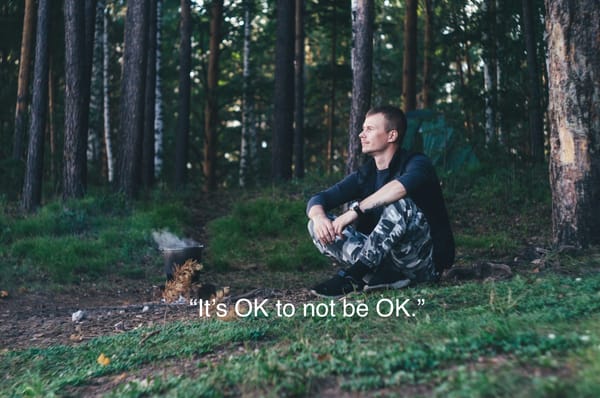How Corporate Office Jobs Are Slowly Killing Us with Stress
Millions of people wake up every day dreading the grind, pushing through exhaustion, stress, and anxiety, just to keep the machine running. But at what cost? Let’s talk about the dark truth of corporate office jobs—the stress, the burnout, and how they’re slowly killing us.

I used to think success meant a corner office, a steady paycheck, and the satisfaction of climbing the corporate ladder. I thought stress was just part of the deal—a badge of honor, proof that I was working hard enough.
But then I started noticing the cracks.
The constant headaches. The racing heart. The feeling that no matter how much I did, it was never enough. Sleepless nights, caffeine-fueled mornings, and the creeping realization that my job was draining the life out of me.
And I wasn’t alone.
Millions of people wake up every day dreading the grind, pushing through exhaustion, stress, and anxiety, just to keep the machine running. But at what cost?
Let’s talk about the dark truth of corporate office jobs—the stress, the burnout, and how they’re slowly killing us.

The Stress Epidemic in the Corporate World
It’s no secret that corporate jobs are stressful. But we’ve normalized it. We joke about being “dead inside,” surviving on coffee, and working until we drop.
The statistics tell a grim story:
• A global survey by Gallup found that 60% of employees feel emotionally detached at work, while 44% experience daily stress.
• The American Institute of Stress reports that job stress is the number one source of stress for adults—more than finances, health, or family issues.
• Chronic workplace stress has been linked to heart disease, high blood pressure, diabetes, depression, and even early death.
And yet, we still convince ourselves that this is normal.
The Invisible Chains: How Work Controls Our Lives
1. The “Always On” Culture
Technology was supposed to make life easier, but instead, it made work inescapable.
Before smartphones, you left work at the office. Now, emails ping at midnight. Slack messages come in on Sundays. And if you don’t respond? You risk being labeled “uncommitted” or “not a team player.”
We’ve become chained to our devices, expected to be available 24/7. The line between work and personal life has vanished, and our nervous systems are paying the price.
When do we actually rest?

2. The Productivity Trap
Corporations measure our worth in output, not well-being. The more we do, the more they expect. And when we finally reach the finish line? The goalpost moves.
• Meetings that could have been emails.
• Emails that could have been ignored.
• Unrealistic deadlines that stretch us to the breaking point.
The hustle culture mentality convinces us that working harder will lead to success, but in reality, it just leads to burnout.
3. The Soul-Crushing Routine
Wake up. Commute. Sit at a desk for eight hours (or more). Commute home. Eat, sleep, repeat.
For many, this cycle feels like a slow death. There’s little time for creativity, passion, or even basic self-care. And yet, we do it because that’s what society expects.
But is this really living?
The Physical Toll: How Stress Wreaks Havoc on the Body
Stress isn’t just mental—it’s deeply physical.

1. The Cardiovascular Nightmare
Chronic stress raises blood pressure, increases inflammation, and damages the heart. Studies show that people in high-stress jobs have a 23% higher risk of heart disease.
The pressure to perform, meet deadlines, and hit KPIs literally puts people in the hospital.
2. Sleep Deprivation and Exhaustion
Office culture glorifies “grinding” and “powering through,” but lack of sleep destroys health.
• Chronic stress disrupts the nervous system, making it hard to fall and stay asleep.
• Poor sleep leads to memory problems, weakened immunity, and mood swings.
• Long-term sleep deprivation increases the risk of stroke, obesity, and Alzheimer’s.
We weren’t designed to run on caffeine and sheer willpower.
3. Digestive Issues and Weight Gain
Ever notice how stressed people often have stomach issues? That’s because stress triggers the gut-brain connection, leading to problems like:
• IBS, bloating, and acid reflux
• Emotional eating and weight gain
• Weakened digestion and poor nutrient absorption
Our bodies weren’t made for constant stress—yet we force them into survival mode every single day.
The Mental and Emotional Damage
It’s not just our bodies that suffer. Stress in corporate jobs erodes mental health, leading to:
1. Anxiety and Depression
When work feels overwhelming, the body stays in fight-or-flight mode. This leads to:
• Constant worry and panic
• Emotional exhaustion
• A feeling of losing control
Studies show that employees in high-stress environments are twice as likely to experience depression.
2. The Loss of Passion and Creativity
The corporate world doesn’t encourage creativity—it stifles it. Stress narrows our thinking, making us less innovative and more robotic.
How many of us have lost touch with our passions because work drains all our energy?
3. Broken Relationships
Stress doesn’t stay at the office. It follows us home, affecting our families and friendships.
• Snapping at loved ones after a long day
• Canceling plans because we’re too exhausted
• Feeling disconnected from the people who matter most
Corporate jobs often demand so much of us that there’s nothing left to give.

Breaking Free: How to Reclaim Your Life
The system is broken. But we don’t have to break with it.
1. Set Hard Boundaries
Your time belongs to you—not your employer.
• Turn off email notifications after work hours.
• Stop working on weekends (unless it’s life-or-death).
• Use your vacation days (and don’t check emails while you’re away).
The company won’t collapse if you take a break. But you might if you don’t.
2. Prioritize Health Over Hustle
Your health is your real wealth.
• Sleep at least 7-8 hours every night.
• Eat real food—not just vending machine snacks.
• Move your body daily (even a short walk helps).
Your body needs care, not constant stress.
3. Find Meaning Outside of Work
Work isn’t your identity. Find something that fuels your soul:
• Start a hobby.
• Spend time with loved ones.
• Create something just for fun.
You are more than your job title.
4. Question the System
Why do we accept stress and burnout as normal? Why do we trade our health for a paycheck?
It’s time to challenge the toxic culture of corporate work. Because at the end of the day, no job is worth your sanity, your health, or your life.
Final Thoughts: What’s the Cost of Staying?

If you feel trapped in a stressful job, ask yourself:
• Is this job worth my health?
• Will I regret spending my life this way?
• What’s the worst that could happen if I walked away?
Because here’s the truth:
A company will replace you in a heartbeat. But your family, your health, and your peace of mind? Those are irreplaceable.
You don’t have to accept stress as your normal. You don’t have to sacrifice yourself for a paycheck.
Life is too short to spend it slowly dying at a desk.
So, what are you going to do about it?
Let me know your story, hit the reply or comment. I would love to hear about your experiences…
Until next time,
Nico 😉



